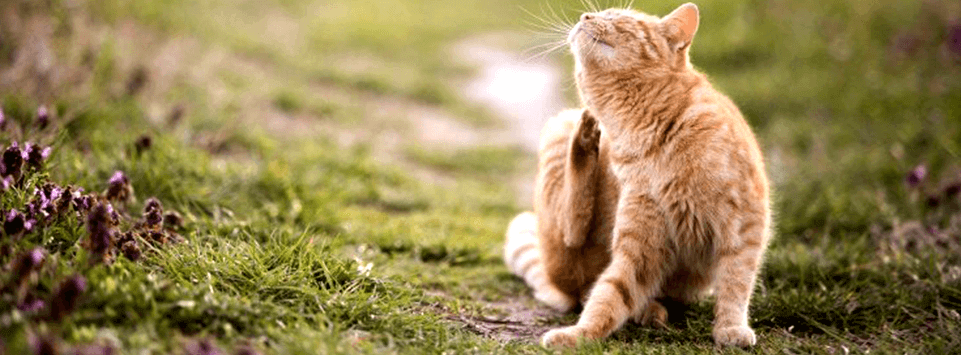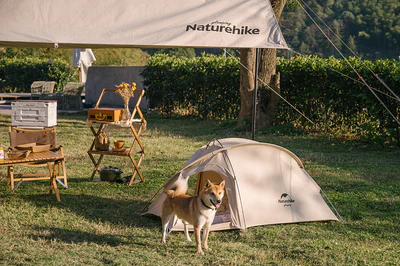1 - Springtime Parasites
- Ticks: Very high risk. Paralysis Ticks - are one of the most important Australian parasites due to their abundancy along the heavily populated Eastern coastline, and the deadly paralysis condition they create. Ticks are at their worst during Spring and Summer due to their breeding season. This seasonal 'tick explosion' can vary each year, and can begin as early as late July
- Fleas: High risk. Fleas love the warm weather and breed most actively during Spring. Fleas can be very difficult to see in your pet's fur - in fact, most people will never see them. You may instead spot 'flea dirt' (which is actually flea faeces!) within the fur over your dog's rump or under your cat's chin. Make sure to keep your pet protected all Spring long with a reputable flea preventative like Nexgard, Bravecto, or Revolution Plus. Learn more about fleas and their life cycle.
- Intestinal worms: Moderate risk. Unfortunately, pesky worms never rest! These 'evergreen' parasites pose a risk all year round, and can lead to debilitating illnesses particularly in young animals. Depending on the species, worms are usually caught in the soil or passed from dog-to-dog via direct contact.
- Heartworm: Moderate-high risk. The transmission of heartworm is at its worst in Summer due to its mosquito-borne method of spread, however mozzies can certainly start to ramp up in Spring - so it's vital to be on top of your pet's heartworm prevention. Plus, with such a slow life cycle, pets requires consistent treatment with no breaks, in order to protect against any immature larvae and keep their bodies heartworm-free!
- Mites: Moderate-low risk. Dust mites tend to flare up in Winter when our windows are closed and homes are stuffy, however some species such as Demodex or ear mites may pose a risk all year round.
Which Preventatives are Best for Spring?
During Spring, depending on your area, tick prevention should be included in your regular parasite regime. This is especially vital for pet owners living within 100km of the Eastern coast line of Australia
However, some animals may not require tick prevention. In many parts of Australia (particularly West Australia and South Australia), tick prevention may not be necessary due to its distribution along the Eastern side of the country. Likewise, cats who live 100% indoor are unlikely to require tick prevention. Ultimately, we recommend checking with a vet in your area about whether your pet requires tick prevention during winter.
2 - Springtime Allergies
Why do skin and ear issues flare up in Spring?
Spring brings a lot of new plant growth. Flowering and non-flowering plants, grasses, pollens, and weeds can all cause your pet to itch, scratch, and develop a range of skin conditions. As the weather becomes warmer and your pet spends more time outdoors exploring their environment, they may react to new plants and pollens in the air.
Unfortunately, unlike changing your pet's diet or keeping flea control up to date, avoiding pollen and grass is not a feasible task. Unless your pet is kept in a quarantine zone, pollen and dust exposure is inevitable.
Pets with atopic dermatitis can have intradermal skin testing with a veterinary dermatologist to identify the cause of their allergies. This is usually followed by a course of immunisations to desensitise the pet against the cause of the allergy, helping to control symptoms. If intradermal testing and desensitisation are not effective or available, other medications and methods can be used to try and minimise the side effects, or strengthen the skin barrier.
3 - Get active in the sunshine!
This Spring, take advantage of the sunshine and get active with your best friend. Just like for humans, exercise helps your dog burn off some extra calories and kick-starts their metabolism. Why not shed that winter weight together?
If you need some extra inspiration, why not splash out on some fun new walking accessories? Just as a new set of active wear can encourage you to hit the gym, a fab new walking accessory may be the 'dog walk inspiration' you need.
For cats, keep them active by encouraging them to play regularly. Provide your kitty with plenty of toys, and don't forget to rotate through them as cats can get bored with the same toys after a while.







